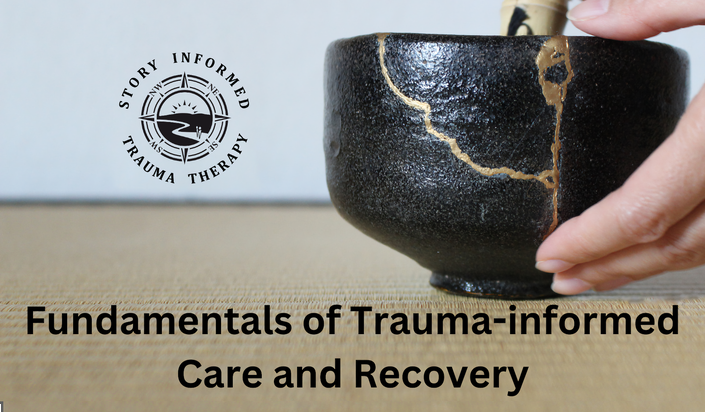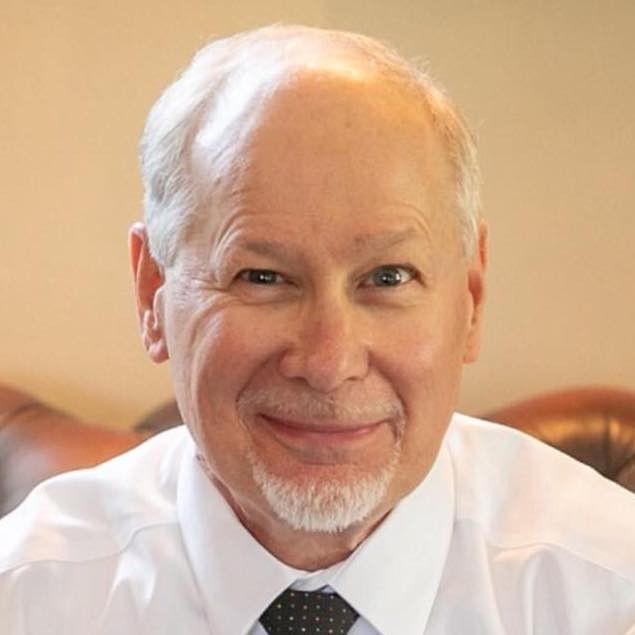
Fundamentals of Trauma-Informed Care and Recovery
Basics of trauma and trauma-informed care. 9-hour training. Prerequisite for SITT training.
This video course, nearly 9 hours in length, presents the fundamentals of trauma impact, trauma-informed care, and an overview of the path to trauma recovery.
Suitable for anyone in a helping profession, this course is also the prerequisite for the Story-Informed Trauma Training for therapists and others seeking to learn the SITT model and pursue SITT certification.
In our modern, post-COVID-19 pandemic world, trauma-informed care is at the heart of effective clinical care to today’s generations. That’s why we are so pleased to offer training for anyone on the caregiving spectrum. No matter if you are a mental health professional, counselor, pastor, or peer support specialist, trauma is becoming more and more prevalent and shows up so many more of our caring conversations
Even so, few graduate programs provide specific training on working with trauma and its impact. The result is that often the indicators of traumatic experiences and their impact go overlooked, and subsequently, treatment fails to address the real roots of the client’s presenting issues, providing no real lasting change.
This training will give you the fundamental skills and tools you need to ensure your counseling or ministry is effectively trauma-informed.
In this training you will learn:
- Develop a strong trauma-informed foundation for effective trauma recovery.
- Identify what qualifies as a traumatic event.
- Recognize why trauma impacts overall functioning and why clients react to trauma differently.
- Assess trauma in people’s stories and the impact on daily functioning.
- Identify how trauma can lead to PTSD which impacts long-term recovery.
- Outline the ten essential impact areas in trauma recovery.
- Recognize and address transgenerational and epigenetic trauma.
- Identify ways people attempt to resolve trauma in unhealthy ways.
- Develop strategies to help people resolve trauma in healthy ways.
- Discuss why knowing our stories is the best way to healing and recovery.
Your Instructor

Byron Kehler, M.S. is a Trauma Therapist in private practice in Milwaukie, Oregon. He has worked with survivors of physical, sexual, emotional, mental, and spiritual abuse for over 40 years. Byron has been certified by the American Academy of Experts in Traumatic Stress and is certified in EMDR with a specialization in Dissociative Disorders.
He has presented on various childhood trauma recovery themes around the country at churches, social services agencies, public and private schools, colleges, universities, and professional conferences. He has provided humanitarian relief services for natural disasters in Asia after the tsunami and the gulf coast post hurricane Katrina, training therapists in trauma recovery.
He is the author and developer of Story-Informed Trauma Therapy (SITT), for recovery from early childhood trauma. This research-based model has been taught to mental health therapists in agencies in New Orleans and the gulf coast following Hurricane Katrina, and has been proven effective in reducing PTSD symptoms for trauma survivors.
Byron brings extensive knowledge, understanding, sensitivity, compassion, practicality, and even humor to his presentations.
Course Curriculum
-
Start1. Introduction & Notes (12:37)
-
Start2. When clients drag trauma behind them. (19:39)
-
Start3. How trauma changes us. (34:28)
-
Start4. Trauma creates Holes & Piles. (19:39)
-
Start5. Present trauma activates past trauma. (42:51)
-
Start6. Brief therapy rationale for Christians. (6:01)
-
Start7. How do we heal? (21:08)
-
Start8. PTSD, Part 1 (36:37)
-
Start9. PTSD, Part 2 (29:24)
-
Start10. Epigenetics & Transgenerational Trauma. (32:09)
-
Start11. Trauma Impact Categories. (17:17)
-
Start12. Comorbidities & the ACE study. (24:14)
-
Start13. The impact of culture-wide trauma. (24:01)
-
Start14. Post-Traumatic Growth. (49:28)
-
Start15. How we can promote PTG. (40:59)
-
Start16. Trauma resolution indicators. (16:32)
-
Start17. The impact of trauma on faith and spirituality. (15:40)
-
Start18. The impact of trauma on self-esteem. (11:37)
-
Start19. Why Story-Informed Trauma Therapy (SITT)? (31:54)
-
Start20. The 9 SITT stages. (21:37)
-
Start21. Q&A about SITT and final words. (16:22)